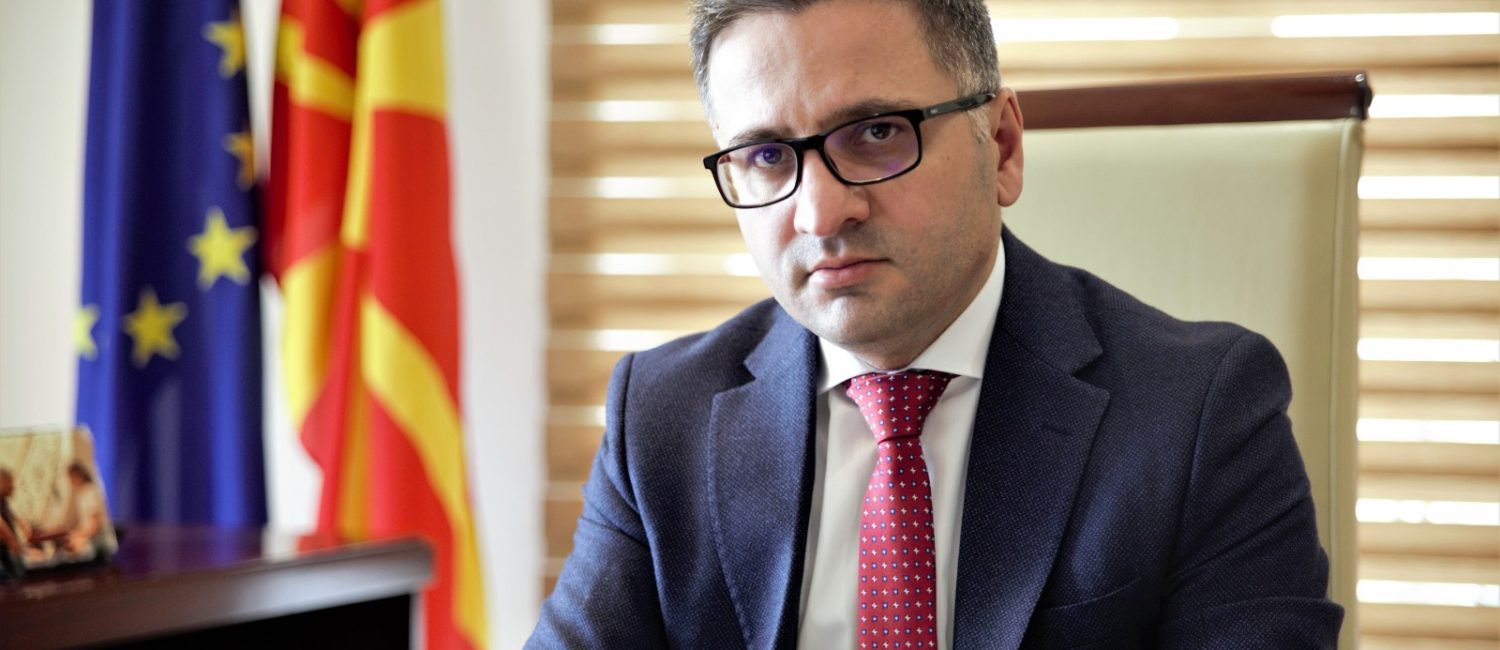3rd April 2022, Skopje – At the end of January, the general government and public debt reduced by several percentage points compared to 2022, accounting for 48.7% and 57%, respectively. Organic Budget Law is in parliamentary procedure, stipulating 60% threshold for the public debt. IMF estimated that the public debt of 70% in the countries in the region will not jeopardize the economic growth. Reduced budget deficit to the end of stabilizing the debt is policy to be pursued in the medium term, while on the short run, the fiscal policy will be focused on economic recovery and supporting the living standard of the citizens as indicated in the most recent article of Minister of Finance, Fatmir Besimi.

“According to the estimates of the International Monetary Fund, as well as the experts, 70% threshold for countries from Central, Eastern and Southeastern Europe, will no adversely affect the economic growth of these economies. Public debt in our country is far below these thresholds. According to the latest data on the general government and the public debt in our country, they accounted for 48.7% and 57%, respectively at the end of January this year. Guaranteed debt accounted for 7.95%. Compared to the end of 2020, public debt reduced by 4 percentage points, while general government debt declined by 3.2 percentage points. Anyway, the fiscal rules defined as Maastricht Criteria, which are already an integral part of the draft organic Budget Law, being in parliamentary procedure, forecast a 60% threshold for the general government debt and 15% threshold for the guaranteed debt as a percentage of GDP, according to which, public debt may reach 75% of GDP, in cumulative terms. However, the new draft Organic Budget Law, stipulates for the budget deficit not to exceed 3% of GDP”, as Minister Besimi wrote.
He pointed out that In line with the revised 2022-2024 Public Debt Strategy (with prospects until 2026), it was expected for 2021 to end with a public debt of 61.2% and a general government debt of 52%. However, the performance was somewhat lower than these projections. As for this year, in line with the Strategy, public and general government debt are expected to account for 63.5% and 53.4%, respectively, however, the lower starting point as well as the newly occurred developments in Ukraine should also be taken into account.
“This year, in line with the 2022 Budget, EUR 894.9 million are needed to finance the budget deficit, as well as the liabilities falling due to be repaid on the foreign and domestic market (EUR 545.2 million out of which for covering the budget deficit, EUR 186 million for repayment of external and domestic debt and EUR 164 million for interest repayment). Sources, wherefrom these needs will be financed are the government securities on the domestic market in the amount of EUR 350 million, Eurobond initially projected in the amount of EUR 250 million, loans from international institutions for financing projects in the amount of around EUR 95 million and around EUR 203 million as deposits”, Besimi indicated. Thereby, as elaborated below, in order to support the business sector and avoid any potential stagflation, it is advisable to focus on external sources of financing.
Budget deficit is projected at 4.3% in 2022. In line with the 2022-2024 Fiscal Strategy (with prospects until 2026), budget deficit is projected to be reduced to 3.5% in 2023, 2.9% in 2024, 2.5% in 2025 and 2.2% in 2026. In line therewith, public and general government debts are expected to be reduced to 56.5% and 50%, respectively until 2026.
“Fiscal consolidation is incorporated in our Fiscal Strategy. We strive for maximum expenditure rationalization, while expanding the development component of the Budget. At the same time, more systemic activities have been undertaken for the purpose of increasing the revenues – such as the measures and the activities aimed at combating the grey economy and enhancing the institutions’ capacities for the revenue collection”, as Minister of Finance pointed out.
He underlined that the newly occurred situation as regards the increase of prices of energy product must also be taken into account.
“As the case with COVID-19 crisis, if no action is taken promptly, there will be substantial social and economic consequences. So-far response implies less tax revenues and additional fiscal expenditures aimed at supporting both the citizens and the companies. Hence, what is most important is to continue to support the recovery of the economy, as the slow and lengthy economic recovery may also contribute to the increase in public debt as a percentage of GDP” – Minister Besimi wrote in his article.
Next activities include the Supplementary Budget (with revised macroeconomic and fiscal projections) and the way of financing the measures for cushioning the effects from the existing crisis, thereby maintaining the economic growth, the fiscal consolidation in the medium term amid price surge and interest rate increase.
Besimi pointed out that the Government stands ready to also undertake new measures geared towards protecting the living standard of the citizens, as well as supporting the economic recovery.
















